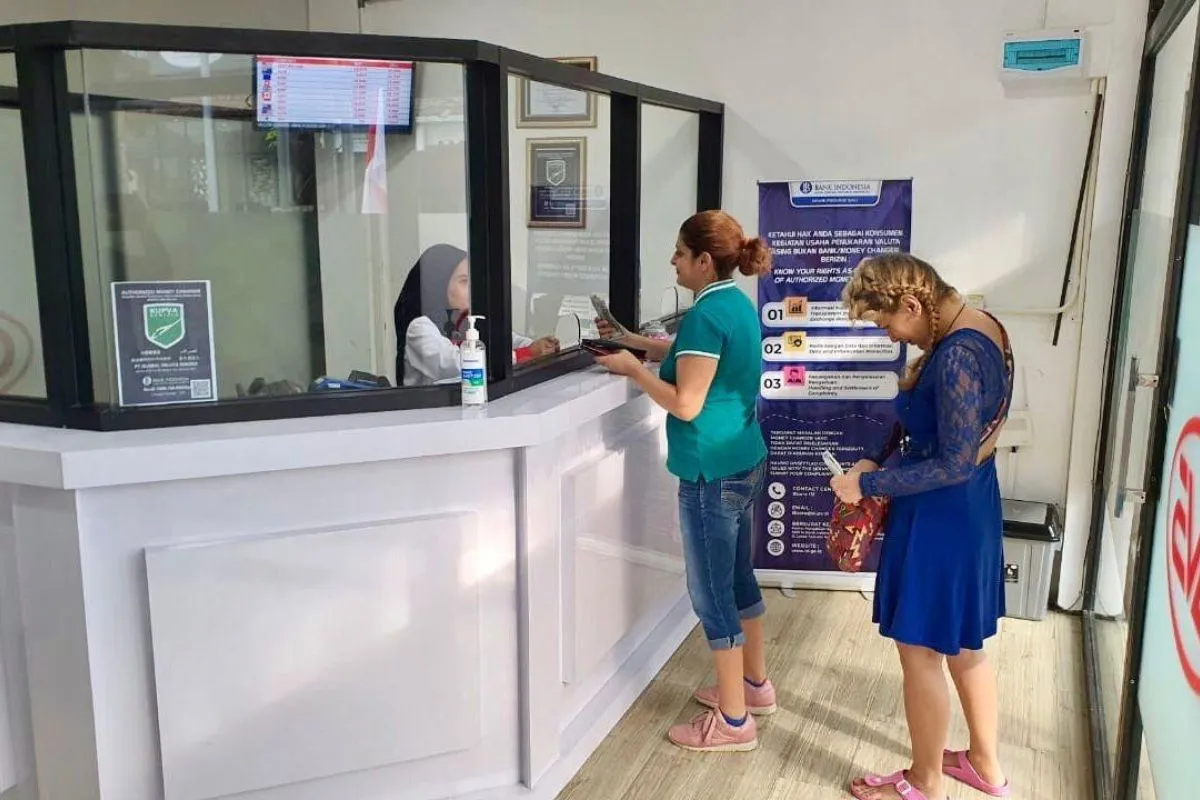Bank Indonesia’s (BI) Bali Representative Office is joining forces with the Bali Regional Police (Polda Bali) to investigate 68 unlicensed money changers suspected of operating illegally across the island. The initiative follows public reports through BI’s complaint channel, BI Patrol, highlighting growing concerns over fraudulent practices targeting tourists.
“Licensed money changers are essential to support Bali’s tourism sector,” said Henry Nosih Saturwa, Head of the Bali BI Representative Office, as quoted by tribratanews.polri.go.id.
He stressed that authorized operators not only ensure fair transactions but also protect visitors from fraud, money laundering, and counterfeit currency.
Why Licensed Money Changers Matter
According to BI, money changers with official permits provide several safeguards. They display a BI-issued logo, a business license certificate, and clearly state their registered corporate name. In addition, employees must present valid identification, while customers are required to show personal IDs such as a passport or KTP as part of the Anti-Money Laundering and Counter-Terrorism Financing (APU PPT) procedures. Unlicensed operators, on the other hand, are seen as a significant threat.
“Illegal money changers not only harm consumers but also risk tarnishing Bali’s global tourism reputation,” emphasized I Gede Ari Suryawan, Ps. Panit 1 Unit 3 Subdit II Ditreskrimsus Polda Bali, as reported by bisnis.com.
He added that enforcement is carried out under the Financial Sector Development and Strengthening Law (UU P2SK), in coordination with multiple agencies.
Strengthening Monitoring and Public Awareness
To improve transparency, BI has launched the website www.moneychangerbali.com, which lists all authorized non-bank foreign exchange businesses (KUPVA BB) in Bali. This online platform aims to guide both locals and international visitors toward safe transaction points.
Henry further urged the public to remain vigilant and proactive.
“The community can report suspected illegal money changers via the BI Patrol link, which will be followed up by the authorities,” he explained.
Beyond enforcement, BI is focusing on public education. The central bank is working with hotels, tourism associations, and local customary villages (desa adat) to spread awareness about the risks of illegal money changers and encourage tourists to transact only at registered outlets.
Collaboration to Protect Bali’s Tourism Image
The crackdown highlights the importance of collaboration between financial regulators, law enforcement, and the tourism industry. With 68 cases already under investigation, BI and Polda Bali are intensifying efforts to ensure that every money changer on the island complies with official regulations.
“Cross-sector synergy is vital to maintain order in Bali’s currency exchange industry,” Henry reiterated.
This joint approach reflects a broader strategy to safeguard Bali’s tourism economy, which relies heavily on maintaining international trust and a positive reputation.
Looking ahead, BI and Polda Bali have pledged to strengthen monitoring systems and expand cooperation with tourism stakeholders. By ensuring that only licensed operators are allowed to serve the market, they aim to build a healthier ecosystem that benefits both tourists and businesses, while protecting Bali’s image as a world-class destination.
Source: tribatranews.polri.go.id, bisnis.com
Photo Credit: Antara

